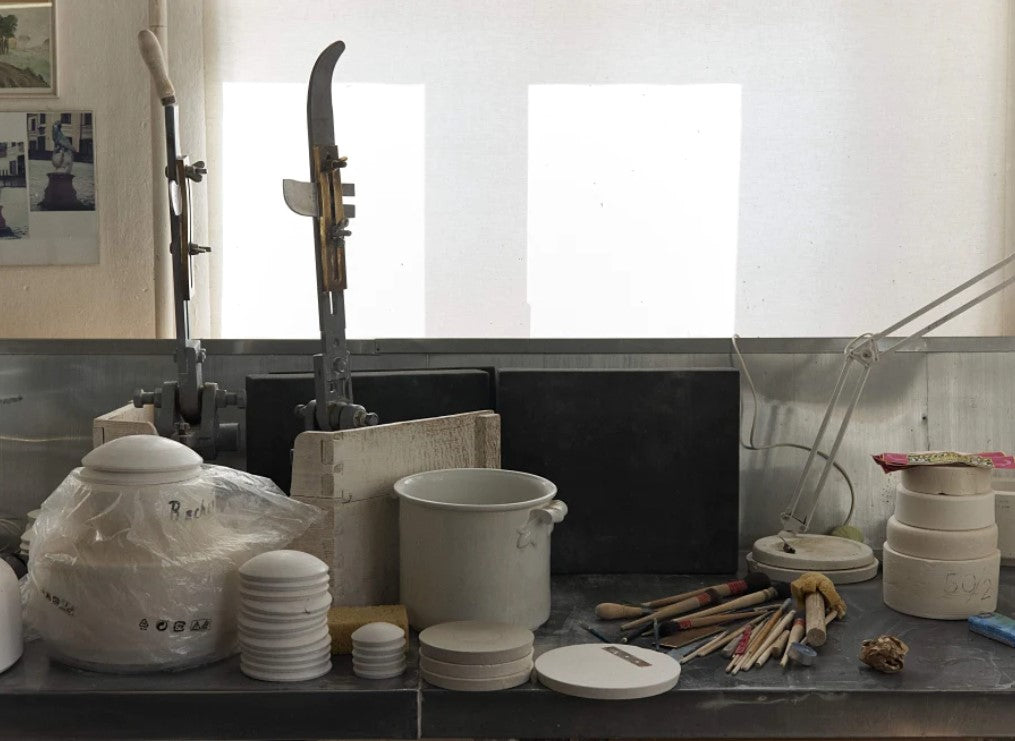Turning shop

All round pieces - plates, bowls, vases - are formed purely by hand on turntables and not, as is common in other manufactories, by means of an automatic roller machine. Due to the time-consuming manual production, the Nymphenburg porcelain is much finer, even though shaping by hand takes more time. First, the porcelain mass required for turning is formed into a so-called "hubel" and shaped on the water-powered wheel. Under the experienced hands of the turners, filigree plates or bowls are created from lumps of mass, which are then given their final shape on a plaster mold. Nymphenburg's repertoire includes a good 20,000 different pieces. Each one is marked with the Nymphenburg blind stamp and the initials of the artisan.
Porzellan Manufaktur Nymphenburg
Nymphenburg ist die letzte Reinstmanufaktur ihrer Art. Seit der Gründung im Jahre 1747 wird in der Manufaktur des Bayerischen Königshauses die hohe Kunst der Porzellanherstellung gepflegt. Manu factum bedeutet dort bis zum heutigen Tage: komplett von Hand gemacht in Techniken, die von Generation zu Generation weitergegeben und bewahrt werden.
